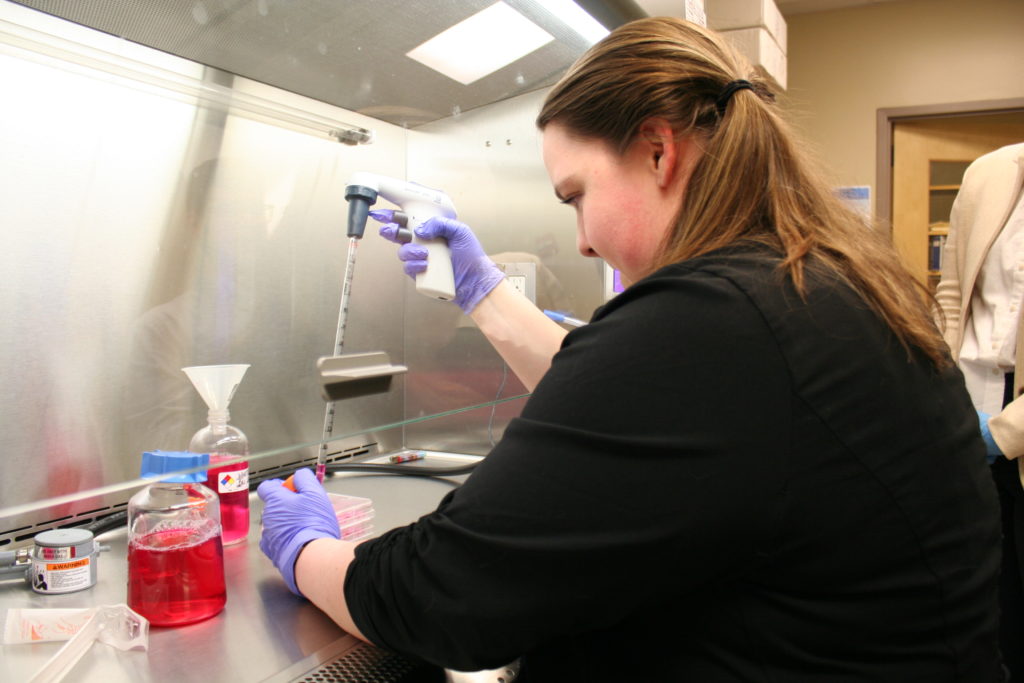Many people believe a career in Pharmacy is limited to wearing a white coat and counting pills. I, like many of you, believed this myth. Pharmacists, however, are medication experts, meaning they possess a deep understanding of how the chemical makeup of a medication interacts with the organic structures of your body. Ask them about a medication and they can tell you all about it without hesitation. Their expansive knowledge is essential to a health care team’s dedication to patient care.
Below, I have summarized a handful of possible areas that pharmacists can focus their expertise.

Cardiology Pharmacist
Many of the conditions and diseases that Americans suffer from are conditions of the heart. Cardiology pharmacists are experts in helping the heart function efficiently–through recommended changes in exercise, diet and medication. They see patients with high blood pressure, high cholesterol, heart failure, cardiac transplant needs and an arrhythmia in hospital and outpatient settings. With so many people affected by heart diseases, they play an integral role in the health of a community.
Ambulatory Care Pharmacist
You will often find ambulatory care pharmacists at your local clinic. According to the Board of Patient Advocacy, ambulatory care pharmacy involves “the provision of integrated, accessible health care services by pharmacists who are accountable for addressing medication needs, developing sustained partnerships with patients, and practicing in the context of family and community.” Ambulatory care is same day care, often in a clinic setting where patients see pharmacists by appointment. Many ambulatory care pharmacists collaborate with physicians, making decisions about adjustments in medications for their patients.
Geriatric Pharmacist
These pharmacists work with the elderly to manage their quality of life as they age. With the majority of elderly patients taking many medications, geriatric pharmacists identify ways to reduce the number of medications a patient is on and stop patients from taking medications that are dangerous for this age group. They may work in long-term care facilities, community pharmacies or in a lab conducting research. With an aging population in Maine, geriatric pharmacists are needed more than ever.
Community Pharmacist
The pharmacist most seen by the public, the community pharmacist dispenses drugs and checks the medications prescribed by doctors. In some instances, doctors may prescribe too much of a medication or prescribe a drug that interacts negatively with a patient’s current medication. As medication experts, community pharmacist catch those mistakes, potentially saving a patient’s life. They counsel patients on how to take their medication and how it will benefit the patient. Vital to public health, they also provide the service of vaccine administration. They are easily accessible to their patients–no appointment is necessary to talk to community pharmacists.
Veterinary Pharmacist
If you have ever tried giving a cat a pill, you know how hard it is. Veterinary pharmacists are specialists in medication for animals. They use their compounding skills to create forms of medication that can be absorbed through the skin rather than needing to be ingested through the mouth. This is a rapidly growing field of pharmacy.
Hospital Pharmacist
Between caring for critical care and transplant patients, hospital pharmacists work closely with a health care team to give patients the best possible health outcomes. Their knowledge of medications and unique perspective can save or greatly improve lives. They work with doctors, nurses, dietitians and social workers (to name a few) to recommend the best medicines and doses for their patients.
Infectious Diseases Pharmacist
Infectious diseases pharmacists monitor antimicrobial use and provide recommendations concerning the selection of antimicrobials and their doses. They also help to develop antimicrobial stewardship systems that may prevent the spread of antimicrobial resistance and combat the spread of disease in a population. They often work in or with hospitals to manage diseases within the institution or community. Many infectious disease pharmacists are Directors of Antimicrobial Stewardship programs, which work with physicians and other prescribers to reduce the risk of emerging antimicrobial resistance. These pharmacists have the option to work directly with patients in a hospital, work on a population level in a health system, or on research.
Pediatric Pharmacist
Specializing in aspects of medication use in children, pediatric pharmacists understand how to correctly dose medications based on the size and weight of the child. Children are not just little adults! They have unique ways of handling medications in the body that require pharmacist expertise. Pediatric pharmacists need to communicate effectively with parents and build trust with children, while creating a hopeful and positive environment for kids experiencing illness and trauma.
Pharmaceutical Industry Pharmacist
These pharmacists work for pharmaceutical companies. They become experts in particular types of medication therapy, and may provide education to clinicians regarding new developments in drug therapy. Industry pharmacists may focus on clinical operations, data management, biostatistics, patient recruitment, medical affairs, regulatory affairs, clinical research and development or patient advocacy. Whatever their role, they contribute to the emergence of new drugs that lengthen the lives of patients with diseases and disorders.
Psychiatric Pharmacist
Psychiatric pharmacists play a key role in diminishing stigma around mental health and creating a safe environment for patients to speak honestly about their struggles. Medications can help patients with depression, anxiety, eating disorders, schizophrenia, ADHD, PTSD, bipolar disorder, migraines, dementia and substance use disorders. While working with an interprofessional team of health care providers, they contribute their psychopharmacotherapy knowledge to recommend the most effective drug for the patient. They aim to minimize adverse side effects, optimize clinical outcomes by recommending the most effective medication and dose, and help the patient understand how and when to properly use the medication.
To read more about different types of pharmacists, visit Pharmacy is Right for Me.

